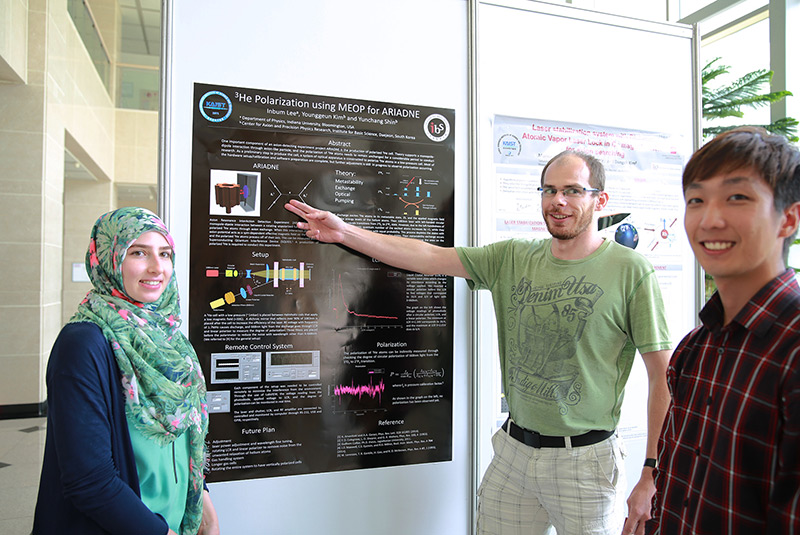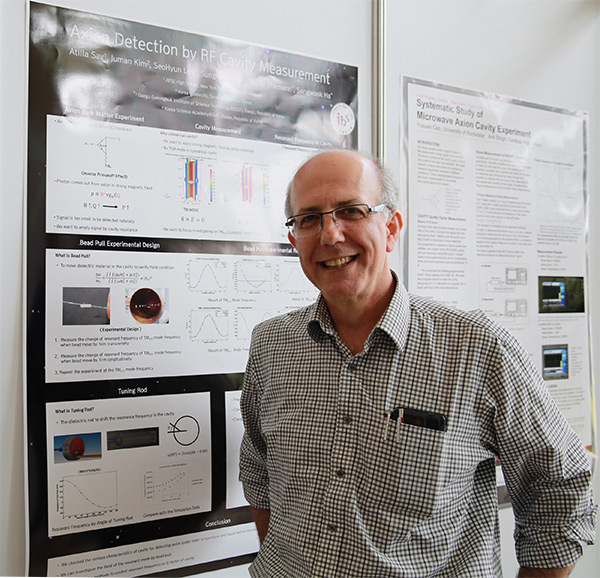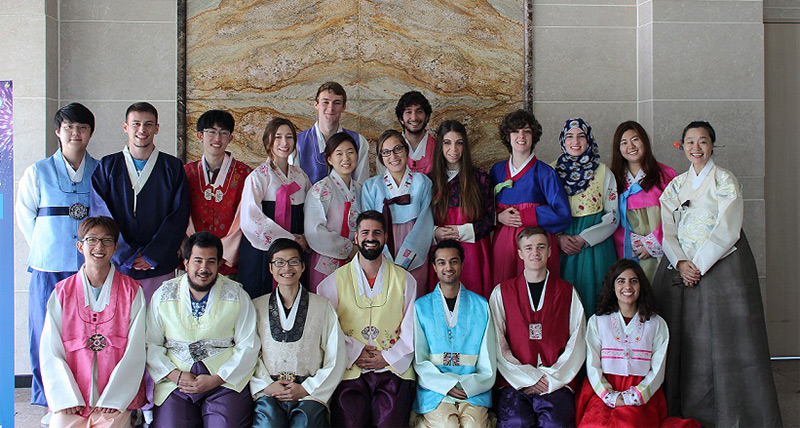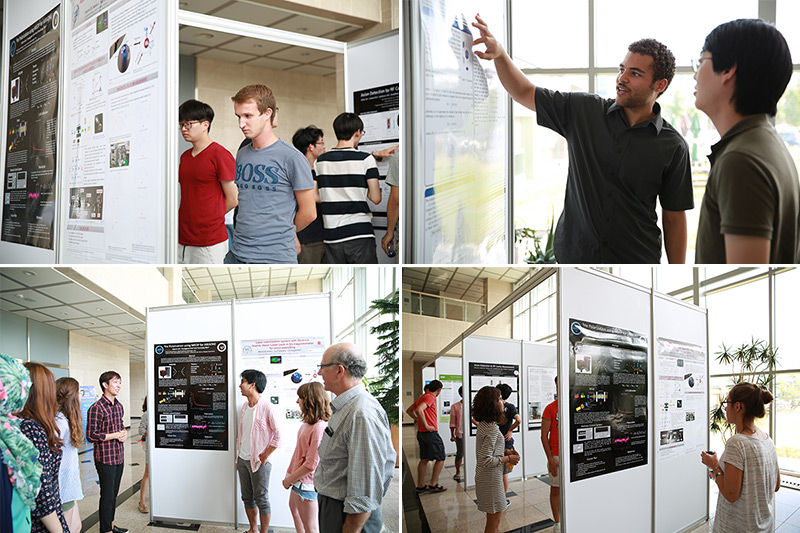주메뉴
- About IBS 연구원소개
-
Research Centers
연구단소개
- Research Outcomes
- Mathematics
- Physics
- Center for Underground Physics
- Center for Theoretical Physics of the Universe (Particle Theory and Cosmology Group)
- Center for Theoretical Physics of the Universe (Cosmology, Gravity and Astroparticle Physics Group)
- Dark Matter Axion Group
- Center for Artificial Low Dimensional Electronic Systems
- Center for Theoretical Physics of Complex Systems
- Center for Quantum Nanoscience
- Center for Exotic Nuclear Studies
- Center for Van der Waals Quantum Solids
- Center for Relativistic Laser Science
- Chemistry
- Life Sciences
- Earth Science
- Interdisciplinary
- Center for Neuroscience Imaging Research (Neuro Technology Group)
- Center for Neuroscience Imaging Research (Cognitive and Computational Neuroscience Group)
- Center for Algorithmic and Robotized Synthesis
- Center for Genome Engineering
- Center for Nanomedicine
- Center for Biomolecular and Cellular Structure
- Center for 2D Quantum Heterostructures
- Center for Quantum Conversion Research
- Institutes
- Korea Virus Research Institute
- News Center 뉴스 센터
- Career 인재초빙
- Living in Korea IBS School-UST
- IBS School 윤리경영


주메뉴
- About IBS
-
Research Centers
- Research Outcomes
- Mathematics
- Physics
- Center for Underground Physics
- Center for Theoretical Physics of the Universe (Particle Theory and Cosmology Group)
- Center for Theoretical Physics of the Universe (Cosmology, Gravity and Astroparticle Physics Group)
- Dark Matter Axion Group
- Center for Artificial Low Dimensional Electronic Systems
- Center for Theoretical Physics of Complex Systems
- Center for Quantum Nanoscience
- Center for Exotic Nuclear Studies
- Center for Van der Waals Quantum Solids
- Center for Relativistic Laser Science
- Chemistry
- Life Sciences
- Earth Science
- Interdisciplinary
- Center for Neuroscience Imaging Research (Neuro Technology Group)
- Center for Neuroscience Imaging Research (Cognitive and Computational Neuroscience Group)
- Center for Algorithmic and Robotized Synthesis
- Center for Genome Engineering
- Center for Nanomedicine
- Center for Biomolecular and Cellular Structure
- Center for 2D Quantum Heterostructures
- Center for Quantum Conversion Research
- Institutes
- Korea Virus Research Institute
- News Center
- Career
- Living in Korea
- IBS School
News Center
| Title | KUSP 2016 for Future Physicists Ended as a Success | ||||
|---|---|---|---|---|---|
| Name | Department of Communications | Registration Date | 2016-08-05 | Hits | 3414 |
| att. |
 thumb.jpg
thumb.jpg
|
||||
KUSP 2016 for Future Physicists Ended as a Success"It was just a 5-week experience, but a new adventure for a student of theoretical physics like me. I was lucky to have this opportunity to experience real physics and made so many good memories with friends from all over the world. Now, I feel like they are my second family."
Leila HAMDAN studies physics at Kuwait University and is about to join a graduate school. She signed up for KUSP (Korea Undergraduate/graduate/ high school Science Program) with a curiosity in how research is actually done in experimental physics. Her experience at KUSP will be invaluable to her in planning her research career. KUSP is an international student training program planned and organized by the IBS Center for Axion and Precision Physics Research (CAPP). CERN, Brookhaven National Laboratory (BNL) and other internationally renowned research institutes have a long history of running a KUSP like short-term research training program. The purpose is to allow aspiring researchers to experience the real world of research, to deepen their understanding about physics and ultimately to prepare themselves for their future research careers. As achievements in basic sciences inevitably entail numerous trial and errors, these research-focused programs are a necessity in helping the students of today become the world leading researchers of tomorrow. Modeling on programs operated by other institutes, CAPP designed its own program investigating the hot topics in experimental physics.
All lectures, experiments, assignments and evaluations of KUSP are conducted in English. It was launched last year targeting college, graduate and high school students who excel in physics. About 40 students from Korea and various other countries including China, Greece, US, Lebanon and Turkey participated in this year's program. The short term goal of KUSP is to communicate the latest knowledge in physics to brilliant students and allow them research opportunities. In the long term, KUSP will serve as a haven for future scientists who will keep the tie and collaborate with CAPP, which will eventually strengthen the competitiveness of CAPP and IBS. "The student level this year is very impressive," said CAPP Director Yannis SEMERTZIDIS. "Our ultimate goal is to connect KUSP with chemistry, life sciences and other disciplines of basic sciences, thus making KUSP one of the representative programs of IBS." By participating in KUSP, students have opportunities to apply theories they learn in the class room to actual experiments. Once students choose a topic such as Standard Model of particle physics, Supersymmetry (SUSY), axion searches, cosmology or cryogenics, they are assigned into various groups by topic, where they have to compose a research plan and conduct experiments, with mentor researchers overseeing their group and offering guidance. "It wasn't easy in the beginning to work with a group of students with such diverse backgrounds, but it was a worthwhile effort," said Research Fellow and KUSP mentor Martin GAISSER, "Myself and other researchers gained valuable teaching experience and CAPP also benefited from organizing such an international program."
The curriculum of KUSP provides many other interesting non-science activities such as Korean language class, cultural activities and visits to other institutes to broaden students' global horizons. Foreign students took Korean language and culture class five hours a week to gain deeper understanding of Korea. In a class on July 22, they learned traditional Korean manners, dressed up in a Korean traditional clothing Hanbok. "It was a definitely a satisfying experience. I will recommend next year's KUSP program to my classmates," said Indiana University student, LEE In-Bum, attending KUSP after a professor recommended this international program. In-Bum has a vast interest in the Axion Resonant Interaction Detection Experiment or ARIADNE where axion is searched as a mediator of forces between objects, rather than a dark matter candidate. "I learned a lot while teaming up with real researchers, planning research and using state-of-the art equipment and facilities. It was also fun to connect with many physics-loving friends from all over the world during KUSP." The poster exhibition and graduation ceremony were held on August 5 to close KUSP 2016. The exhibition will continue until August 11th on the main KAIST campus to share the students' achievements.
|
|||||
| Next | |
|---|---|
| before |
- Content Manager
- Public Relations Team : Yim Ji Yeob 042-878-8173
- Last Update 2023-11-28 14:20















